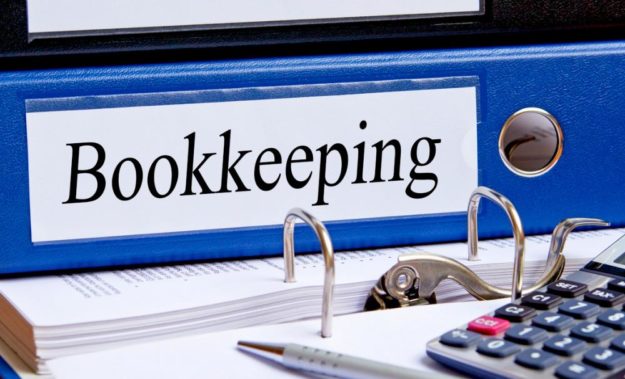here are only a few businesses guaranteed to be in demand every year and an accounting business is one of them.
Whether it’s due to taxes, audits, or standard business purposes, accountants will always be in demand. As such, the accounting industry is projected to generate $160 billion by 2018.
That is not a typo.
So while other businesses rise and fall based on consumer trends, accountants will never be without work. This makes it very appealing to start an accounting business.
But there are questions a young CPA may have, such as who can start an accounting business? Or what is required to start an accounting business?
The reality is that to start a CPA firm is no different than to start any other business – with one exception. Since accounting is a needed commodity, it’s actually easier to start a CPA firm from scratch than most other businesses.
And as more entrepreneurs begin starting their own business, you are in a better and better position to start your own accounting business.
12 Quick and Easy Steps to Starting Your Own Accounting Business
For those with a degree in accounting or a certified public accountant, there is nothing more fulfilling than to open up your own accounting business and utilize your expertise to benefit yourself and your family, rather than someone else’s bottom line.
If that’s your goal, read this guide and learn what you need to start in accounting business in just 12 steps.
Step 1: Learn How an Accounting Business Works
While having an accounting degree is a must to be a CPA, that on its own is not enough to justify you starting your own accounting business.
As with any skill, the way to improve is with a teacher. And there is no better teacher than real world experience. You must explore the ins and outs of a business. It’s not just number crunching and understanding statutes.
There is customer service involved.
Staffing.
Marketing.
A great accountant must not only understand his or her own business but your clients’, as well. Generally, opening your own accounting business means you’ll be working for various individuals or clients with equally different types of businesses. Your profession requires you to serve their needs–from bookkeeping to tax planning, cash flow, and management controls– without missing a beat.
And to prepare for that and truly understand how an accounting business works, you should start by working in one.
Step 2: Create a Plan
Remember, starting your own accounting business is a choice.
You can easily go work at someone else’s accounting business for the rest of your life and do quite well.
But choosing to start an accounting business means you are responsible for own success. And for the success and livelihood of those working under you. To give your business the best opportunity to thrive, you have to have a plan.

If you’ve ever advised any new business owner, there’s no doubt you recommended they create a business plan. Would you expect these entrepreneurs to succeed without a plan?
No.
So it’s illogical to think your business could thrive without one.
If you’re unfamiliar with traditional business plans, you can find a good template here.
By answering the questions within a business plan and anticipating the obstacles within your business’s path, you are setting yourself and your business up for success.
Starting an accounting business is a choice. Having a plan is not.
Step 3: Discover Earning Potential
You may be wondering, how much money do accounting businesses make?
Well, according to Robert Half’s latest Salary Guide, public accountants in audit/assurance services can expect entry-level salaries ranging from $50,000 to $73,500 in small to large companies in 2017. That’s up 4 percent from the year before, it added.
But when you start your own accounting business, you stand to make significantly more.
As mentioned above, accounting services are forecasted to generate around $160 billion by 2018. And with the country seeing a resurging economy and stronger dollar, now is the perfect time to start an accounting business.
More and more small businesses are expanding, and more and more entrepreneurs are creating startups. All of these companies require financial help, ensuring that there is never a bad time to start an accounting business. And to prove it, Forbes noted that there is a 16 percent increase in jobs for accountants and auditors through 2020.
To understand your earnings potential, think of it as a formula.
Understand what your prices are.
Are you charging hourly or value billing?
Hourly billing will maximize your revenue, but value billing has the potential to bring in more customers.
How much does each service charge?
GrowthForce, a top online platform for small business financial management, offered this sample pricing for accounting services:
- For part-time bookkeeping for small to medium businesses at 15-25 hours ranges between $45-65 an hour.
- Full-time bookkeeping for small to medium businesses, the salary is $35,000 to $55,000 per year plus benefits.
- For outsourcing bookkeeping for small to medium businesses, the average price ranges from $500 to $2,500 a month depending on the volume and complexity of the transactions.
Once you know your prices, estimate how many customers you can bring in, subtract your costs, and that gives you your projected earnings potential.
Step 4: Set a Budget
As an accountant, the concept of a budget is second nature to you.
Sticking to it is a little bit harder.
You must understand the costs involved in starting an accounting business before creating a budget.
The cost to open your accounting business would depend on your income expectation and business location whether you’ll rent an office space or home-based. According to Build Your Firm Inc., the start-up costs to earn $150,000 of new business will generally cost more than $50,000. However, an intelligent, motivated accountant can start a CPA firm for significantly less.
You can adapt your business plan to conserve money as you grow your business, but there are cons for every pro.
A central cost will be office rent. You can avoid that cost if you’re an on-demand, on-call CPA. You might be able to charge higher rates, but you’ll be limited to the number of clients you can handle at one time. Additionally, if your rates are higher, your client pool becomes smaller.
An office, while costing more, will make your business seem far more reputable and more accessible to clients.
Other costs to consider:
- Utility bills
- Office staff salary
- Marketing & Promotions
- Permits
- Insurance
- Furniture
- Office supplies
While this list is not complete, it should give you a good idea of where to start.
From there, stick to your budget to avoid overspending on line items and jeopardizing your business.
If you’re looking to keep costs down, one suggestion is to rent space in a commercial building with shared receptionists. With labor being your highest cost, eliminating a position’s cost is worth spending a bit more on your office space.
Step 5: Decide Which Products/Service to Offer
As an accountant, your product pool is limited, making this step relatively easy.
Bookkeeping sells better than any other accounting service. Other offerings typically offered by an accounting business include:
- Bookkeeping: This service includes making accounts payable and receivable, billing, payroll, monthly and quarterly taxes, bank reconciliations, general ledger entries, and monthly trial balances.
- Accounting: Preparing budgets, financial statements, and local, state and federal tax returns. It also covers auditing and evaluating of services, monitoring of assets, managing fraud issues faced by a company, setting up computer accounting systems, and auditing information systems.
- Consulting: Giving sound advice on financial strategy, business plan, risk management, financial, and regulatory changes.

And while you’ll need to be proficient in all these areas, you can choose to offer specialty niches, such as accounting for investment firms or startups.
While the general idea remains the same, each industry has its own nuances.
Your firm can thrive off of understanding those nuances and specializing in them.
Step 6: Decide on a Location
Having a strategic location for your accounting services is a big factor in your business’s success.
Your location should be about your prospective customers, and not about what you want, need, or like.
While you may only need a folding table and wifi in a spare room in some dilapidated building, that may not give the best impression of your ability to customers.
During tax season when most accountants are the busiest, your customers may have to wait to speak with one. Having a waiting area lets customers feel at ease and comfortable until they’re called up.
But as an accountant, you know how important your budget is, so make sure that space meets your figures.
You’ll also want your location to be central to your target market.
If you are billing hourly and looking to focus on corporate clients, perhaps you should have a downtown location that’s close to office buildings.
If you’re looking to provide value billing to lower income communities, particularly during tax season, you can get a smaller space in a strip mall within those areas, or even operate satellite offices during the busy season.
According to Entrepreneur, you should also consider the following in choosing the location of your business:
- Style of operation
- Demographics
- Foot traffic
- Accessibility and parking
- Competition
- Proximity to other businesses and services
- Image and history of the site
- Ordinances
- The building’s infrastructure
- Utilities and other costs
To give your business its best chance for success, choose your location wisely.
Step 7: Find Suppliers
As an accounting business, your supply needs are limited. You’ll really only need to focus on four main categories:
- Furniture – cubicles, desks, chairs, conference table, filing cabinets, bookshelves and sofa for the reception area.
- Computers equipment, including accessories and peripherals such as copy machines, computer tables, printers, internet access, and software.
- Office supplies – stationery, ledgers, accounting books, whiteboard, binders, pens, bond paper, writing pads, folders, fasteners, staples, etc.
- Communication equipment – phone system preferably PABX with voice messaging, fax machine.
- Scanner
You’ll also want to make sure you have a steady amount of all needed tax forms, which you can make copies of as needed if you get low.
Office suppliers:
Office material dealers
Furniture:
Printing Products:
Computers:
- Ingram Micro Inc.
- Tech Data Corp.
- SYNNEX Information Technologies
- Azerty
- Infotel Distributing
Step 8: Promote Your Accounting Business
Promoting your accounting business simply means letting your market know you’re there.
In order to do that, you must first define who your audience is and what the best way to reach them actually is.
So many people throw money at marketing and promotions without a plan or thinking what the best way to reach the audience is.
Your plan will also depend on the size of your firm. Do you want to go big right away and target large companies? Or would you rather start small with home-based and medium enterprises as your customers?
The most effective promotional tool you have is your own website and social media presence.
Sites such as Yelp, Twitter, Facebook, and LinkedIn are opportunities to reach massive amounts of people through targeted advertising. Having a strong presence on these platforms is a great way of attracting clients. Just make sure you’re targeting your specific target audience.
You can also volunteer your services to local charities and events for positive news coverage. And when in doubt, stand on the sidewalk and hand out flyers and coupons, which you can also distribute on cars and in office bulletin boards (with permission).
Step 9: Create a Staffing Plan
If your accounting business is a sole proprietorship, there might be no need for a staffing plan yet.
However, if you are building a small firm, you’d need a secretary and a staff consisting of bookkeepers (may include student undergraduates) who will provide auditing and tax consultancy services to their clients.
As the office grows, so does the staffing pattern – especially if the organization becomes a partnership with multiple owners and a host of certified public accountants in the payroll.
An even bigger organization will require a hierarchy of senior managers and partners thus requiring a more aggressive approach to hiring and staffing.
In any case, make sure you have a plan in place for future hiring and scheduling as you grow. Make sure you have an idea where you’re going to start looking for potential additions to your staff as well.
A good place to start is the local college or university where accounting students might be looking for work experience.

Accounting is one of the few businesses where you can do everything yourself – if you are a sole proprietorship. However, if you don’t plan on being a one-man shop, it’s essential to have a plan in place for hiring and staffing employees.
Step 10: Decide on a Style/Design
Decide on a style or design that’s sure to make people understand at one glance that the company is an accounting business.
Calling your firm “Tom’s” may be acceptable if your name is Tom, but what will that do for a customer?
Using “Tom’s Tax & Accounting Services” instead is a better play.
Use images and text that’s telling of what it is you do exactly.
- “Philip Cole Accounting Service – Specializing in startup bookkeeping”
- “Philip Cole Tax Services – We guarantee our returns so that you can relax instead of retax”
Have fun with it, but make sure the message comes through. Make sure everything you hand to customers shows who you are and what you do.
And if you get stuck on creating a design or logo, visit 99designs.com and let designers compete for your bid with their creations.
Step 11: Create an Accounting Plan
As an accounting business, creating an accounting plan will be relatively easy for you.
An accounting plan for your firm should include revenue tracking, tax management, and reporting to ensure compliance with tax laws.
Track all your labor, income, and outputs to ensure your budget is being followed and you’ll be fine.
Step 12: Get Into the Accounting Firm Community
Networking is the best way to grow.
Make sure you’re attending local events and meetups. You never know where you may find a new client or key employee.
You can also join some accounting associations:
The community is great for business owners, especially new business owners – to learn new strategies, tips, and techniques to help your accounting business grow.
The Bottom Line
Opening (and running) an accounting business is a lot of work.
But if you do it right, it’s rewarding.
You can help people take control of their finances and their lives.
Hopefully, you put this guide to use.
If this was helpful for you and you want to learn more about starting an accounting business, StartupJungle.com has a 21 point checklist for starting your new business. Make sure you download this if you’re serious about getting started.






